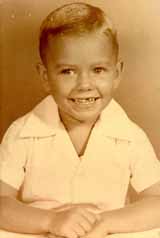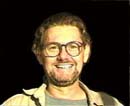| WWW Site Development for Educators |
EDCI 4993, Spring 1999 4:30 to 7:15, Mondays |
|
Syllabus and in class activities for April 26. | Why do you want to print this document? It is linked to many other important documents -- your printed copy is linked to the death of trees. |
| Important Dates | | Top | Texts and Resources | Course Description | Objectives | |
| | Evaluation | Grading | Who is George North | Class Web Pages | | |
| Date | Description |
|---|---|
| Prior Weeks | 0 class meetings left, congrats |
|
This Week Monday, April 26 Monday, April 26 Monday, April 26 Monday, April 26 Monday, April 26 Monday, April 26  littleMe Monday, April 26 Monday, April 26 Back to the Top |
Tonight ... each group (every member) will present their project's web sites ... and discuss (tell a story)
about how their work traveled and then ended (here). Your Self Evaluation is due tonight. Don't forget our final exam ... Monday, May 3, 4:30 PM at my home. Need a map to George's house? The address is 201 Elmeer Ave, the red star marks the spot. Assignment Due -- for the rest of your life -- Publish, but keep in mind that ... the World Wide Web is just a prototype information network ... the best is yet to come. prototype (n). 1. An original type, form, or instance that serves as a model on which later stages are based or judged. 2. An early, typical example. 3. Biology. A primitive or ancestral form or species. [French, from Greek prototupon, from neuter of prototupos, original : prato-, proto- + tupos, model.] publish (v). 1. To prepare and issue (printed material) for public distribution or sale. 2. To bring to the public attention; announce. 3. To issue a publication. 2. To be the writer or author of published works or a work. [Middle English publicen, publishen, to make known publicly, from Old French publier, from Latin publicre. See PUBLICATION.] publishable (adj) What I'm thinking? Do we want our final to start at 4:30 or a little later, say 5:30 ... it will be cooler? What abut Emmit? How did you feel about eMailing your evaluations to Emmit, knowing that everyone in class would read them? The syllabus for our class was visited something over 3000 times. Tell me what you think. Did this work well? What did you like? What did'nt you like? What can I do to imporve on this idea of web based class assignments? Jazz Fest Fats History 102 World Lecture Hall I know that our class has produced 15 webmasters -- you are able to create and maintain your own web sites, and, MOST IMPORTANTLY, you are capable of helping others do the same. I feel that you are all evangelist for web sites in education. Semester Project Groups |
Back to the top |
. |
| Monday, May 3 | Our final exam is a university requirement. Final Exams. |
| Tuesday, May 4 | Final Exams |
| Wednesday, May 5 | Final Exams |
| Thursday, May 6 | Final Exams |
| Friday, May 7 | Final Exams |
| Saturday, May 8 and thereafter | Freedom and justice for all! |
| Saturday, May 14 | COMMENCEMENT (7:00 PM) Intersession 1999 - classes begins (super-mini session) |
| Wednesday, June 2 | Intersession 1999 - classes end |
Back to the top |
. |
Prior Weeks
| Prior Dates | Description |
|---|---|
| Monday, January 11 | Old Syllabus |
| Monday, January 18 | Martin Luther King's Birthday - Holiday. |
| Monday, January 25 | Old Syllabus |
| Monday, February 1 | Old Syllabus |
| Monday, February 8 | Old Syllabus |
| Monday, February 15 | Mardi Gras Holiday. |
| Monday, February 22 | Old Syllabus |
| Monday, March 1 | Old Syllabus |
| Monday, March 8 | Old Syllabus |
| Monday, March 15 | Old Syllabus |
| Monday, March 22 | Old Syllabus |
| Monday, March 29 | Spring Break ... Holiday |
| Sunday, April 4 | Easter Sunday Martin Luther King, Jr.'s death |
| Monday, April 5 | Old Syllabus |
| Friday, April 9 | My son Barret's birthday. See some of Barret's art |
| Monday, April 12 | Old Syllabus |
| Monday, April 19 | Old Syllabus |
Back to the top |
. |
| Texts & Resources | | Top | Important Dates | Course Description | Objectives | |
| | Evaluation | Grading | Who is George North | Class Web Pages | | |
Required reading for this class will be selected World Wide Web sites as indicated each week in the syllabus. These will be found using the link at the top of this pages titled "Links to Explore." From time to time we will mention and discuss some of the available texts covering this topic. You are encouraged to bring to class any books you find interesting and share these with the rest of us. Bring books and other recourses to class is one way to satisfy the class participation requirement.
| Course Description | | Top | Important Dates | Texts & Resources | Objectives | |
| | Evaluation | Grading | Who is George North | Class Web Pages | | |
Prerequisites: This course is intended to help educators acquire a working knowledge of electronic Information Networks. Begun in 1989 by Tim Berners-Lee, the World Wide Web (WWW or W3) didn't appear in popular culture until after 1995. Today, web site addresses seem to be everywhere. Do you really know what -- http://www.ed.uno.edu/index.html -- is?
We will discuss how teachers can use WWW sites in curricula development. Especially, we will attempt to show how developing WWW sites themselves will make teachers more productive. There is a substantial initial investment in building your own web sites, but once started, it will be easier for you and "for others" to reuse your work. It may be "for others" is most significant. Not only do educators directly benefit from their own work, they benefit from all the other educator built web sites. One example of a great web site to link to you own site is: http://ss.uno.edu/. This is the hyper linked part of WWW.
We will learn that the WWW is just one example of a hyper linked environment ... that the web is the best known prototype of an information network. It is my expectation that you will come to understand that no one benefits from information networks more than educators.
Most of this class will be conducted as a business, we will be web publishers. We will be planners, copy writers, editors, graphic artists, and technologists. We will learn what is a web server, how to build one, what is needed to start a web site from scratch. We will also discuss what are the future WWW trends.
Information Networks: The goal is learning -- taking place in a social context where knowledge is created from information with action guided by pedagogy.
We will build information networks!
| Objectives | | Top | Important Dates | Texts & Resources | Course Description | |
| | Evaluation | Grading | Who is George North | Class Web Pages | | |
Helping educators develop the skills needed to build WWW sites for themselves (home pages), for their classrooms, and for their schools are the foundation for the objectives of this class.
Students will be given the opportunity:
| Evaluation | | Top | Important Dates | Texts & Resources | Course Description | |
| | Objectives | Grading | Who is George North | Class Web Pages | | |
Please note that it is possible to earn more than 100 points. Read carefully each of the six evaluation areas below. Hint ... follow the links to details of each area.
Final grade will be based in large on student's self-evaluation. Remember, evaluations are due at the beginning of our last class -- Monday April 26, 4:30 PM.
| Grading | | Top | Important Dates | Texts & Resources | Course Description | |
| | Objectives | Evaluation | Who is George North | Class Web Pages | | |
|
Who is George North | | Top | Important Dates | Texts & Resources | Course Description | |
| | Objectives | Evaluation | Grading | Class Web Pages | | |
Today, I am a student in the Ph.D. program, College of Education, Curriculum & Instruction. In my past life, for 30 years, I was a systems analyst, programmer, Information Systems manager, and computer consultant. I earned a B.S. in
 Liberal Arts from the University of the State of New York, and a M.S. in Computer
Science from the University of New Orleans. My goal is to teach at the college level ...
to help educators integrate Information networks into their daily lives as teachers and learners.
Liberal Arts from the University of the State of New York, and a M.S. in Computer
Science from the University of New Orleans. My goal is to teach at the college level ...
to help educators integrate Information networks into their daily lives as teachers and learners.George North
Office: ED 308A
Phone: 280-6523
Home: 834-1891
E-mail: gnorth@mac.com
Web Site: http://georgenorth.net/~george/georgeHome.php
Office Hours:
Monday: 3:30 - 4:30
Monday: 7:15 - 8:15 PM
Also by appointment
Back to Top